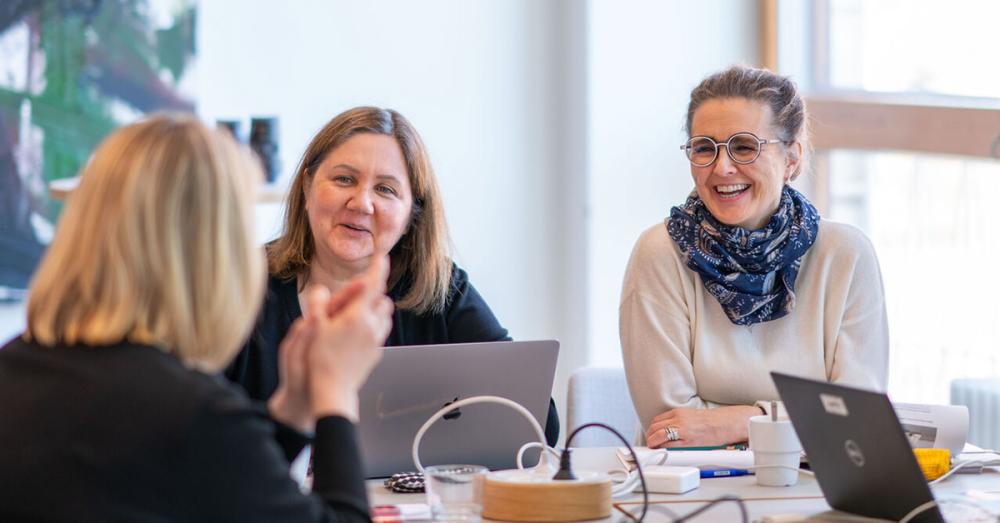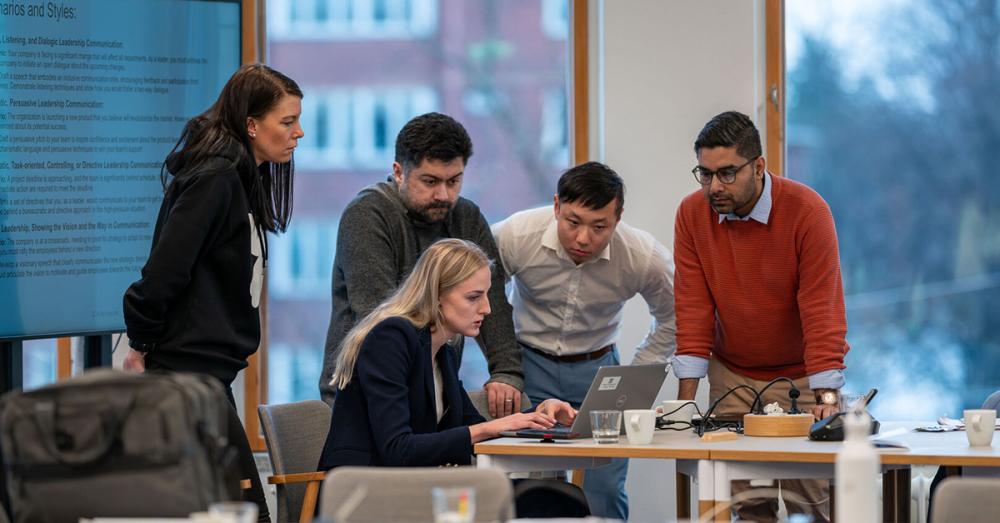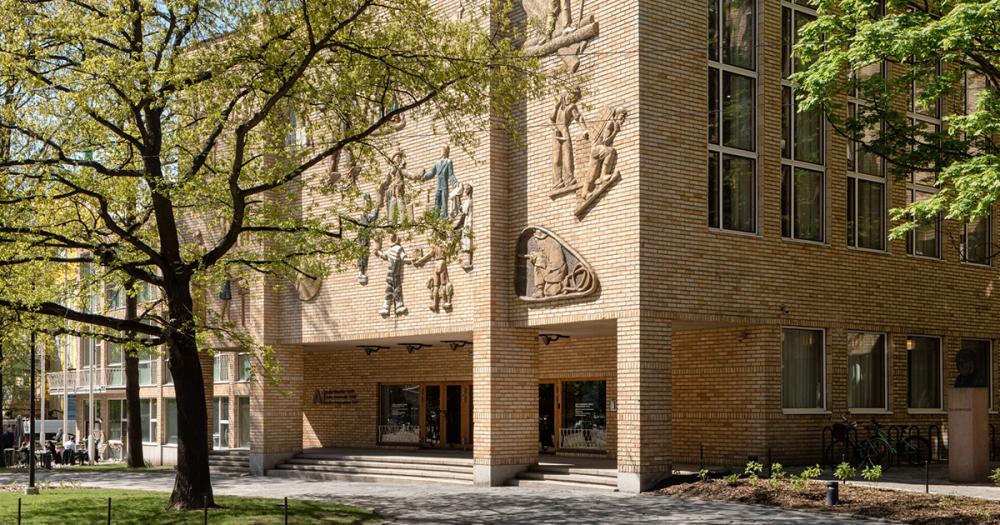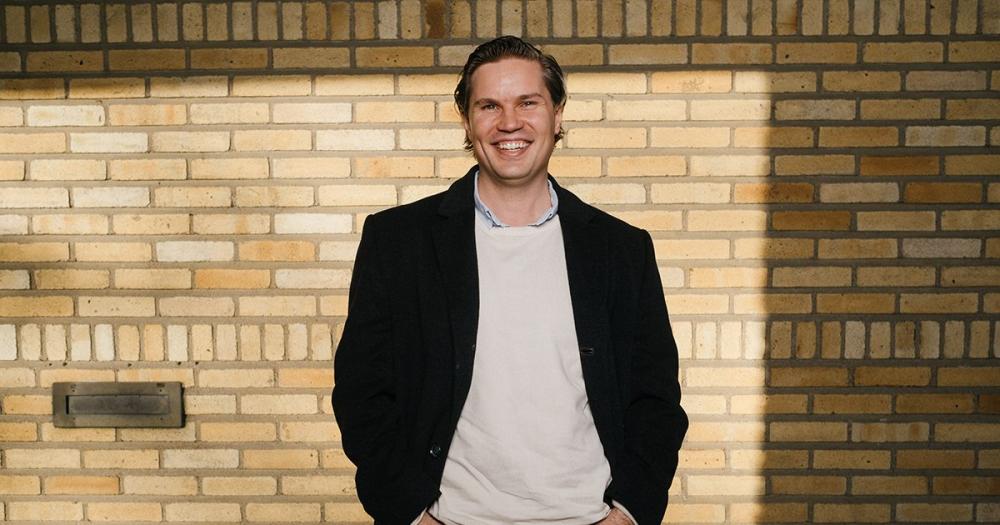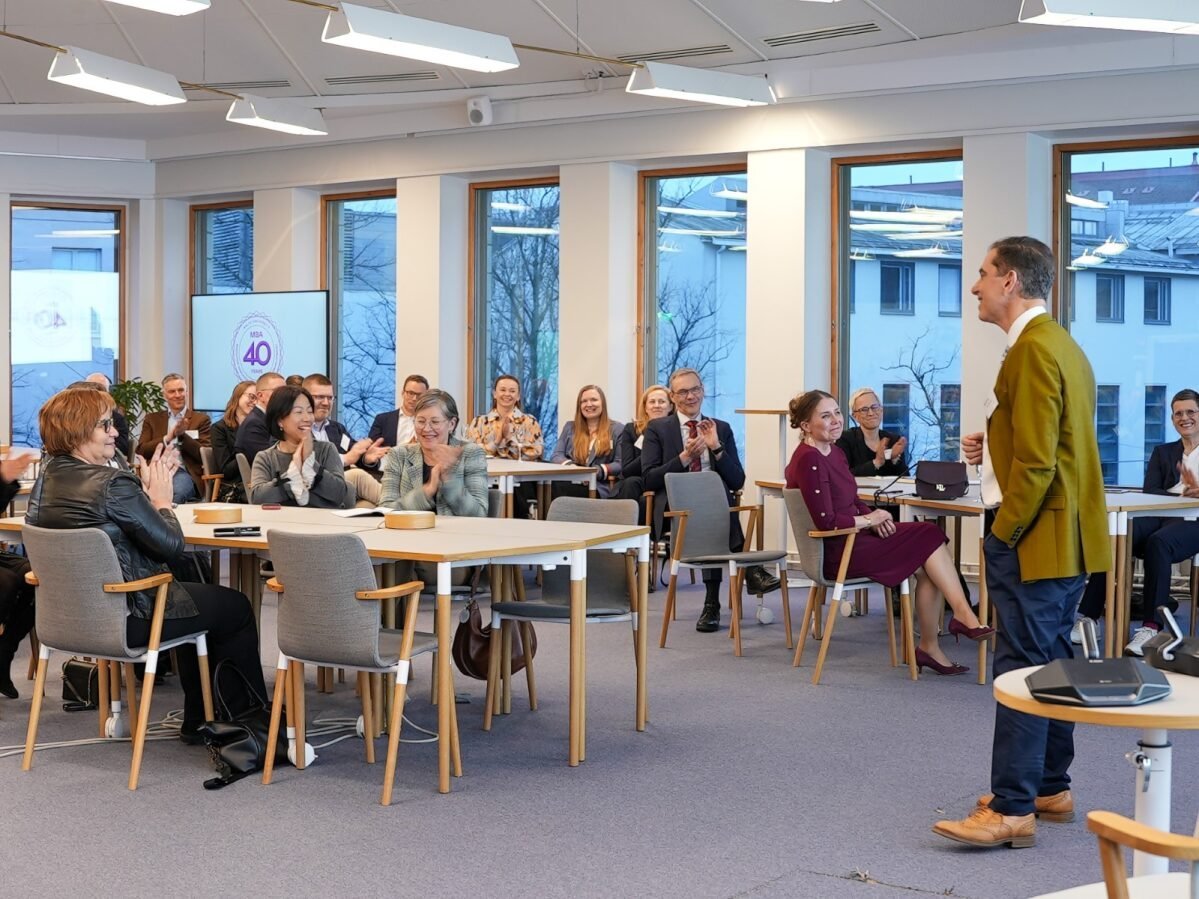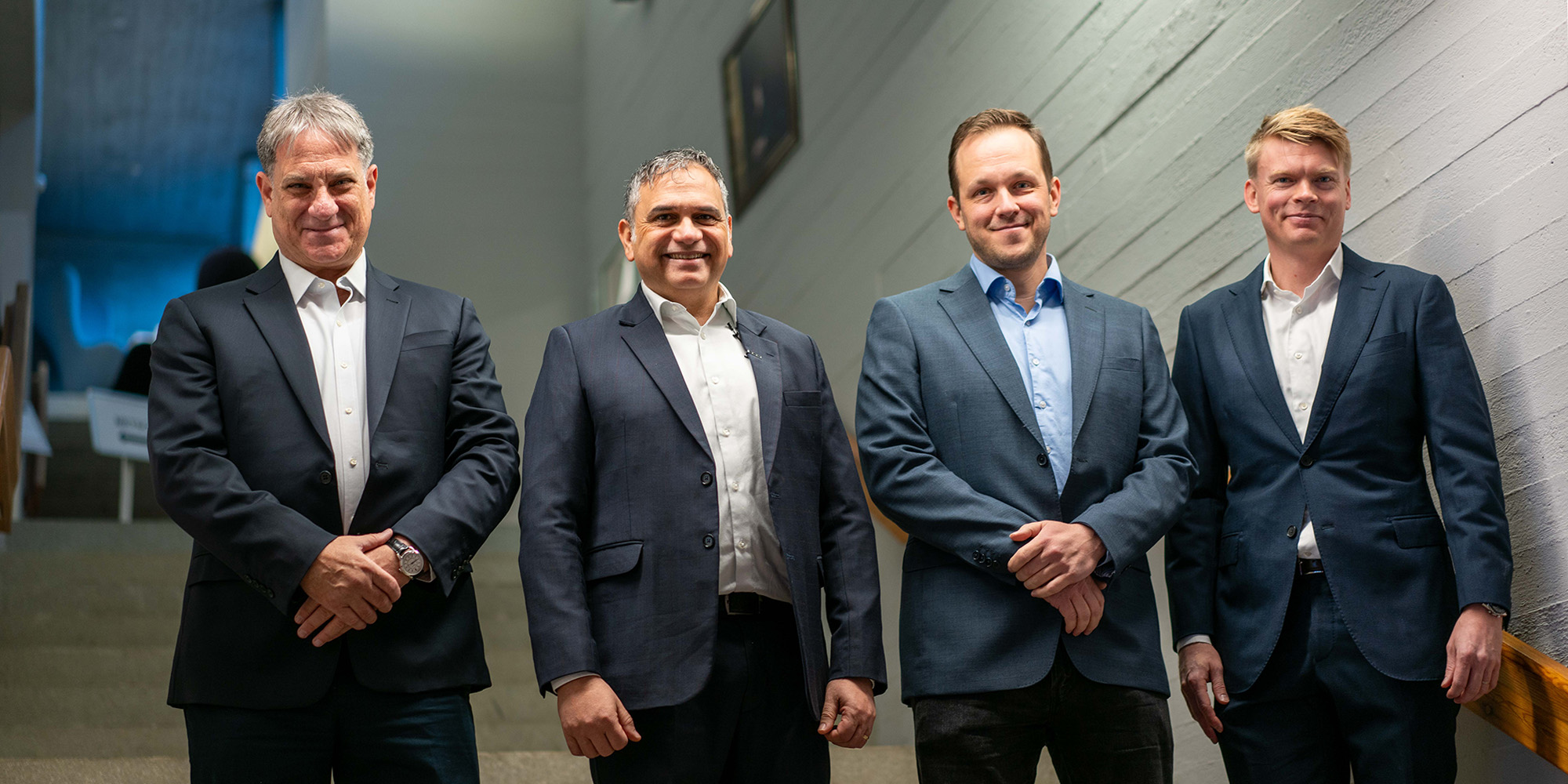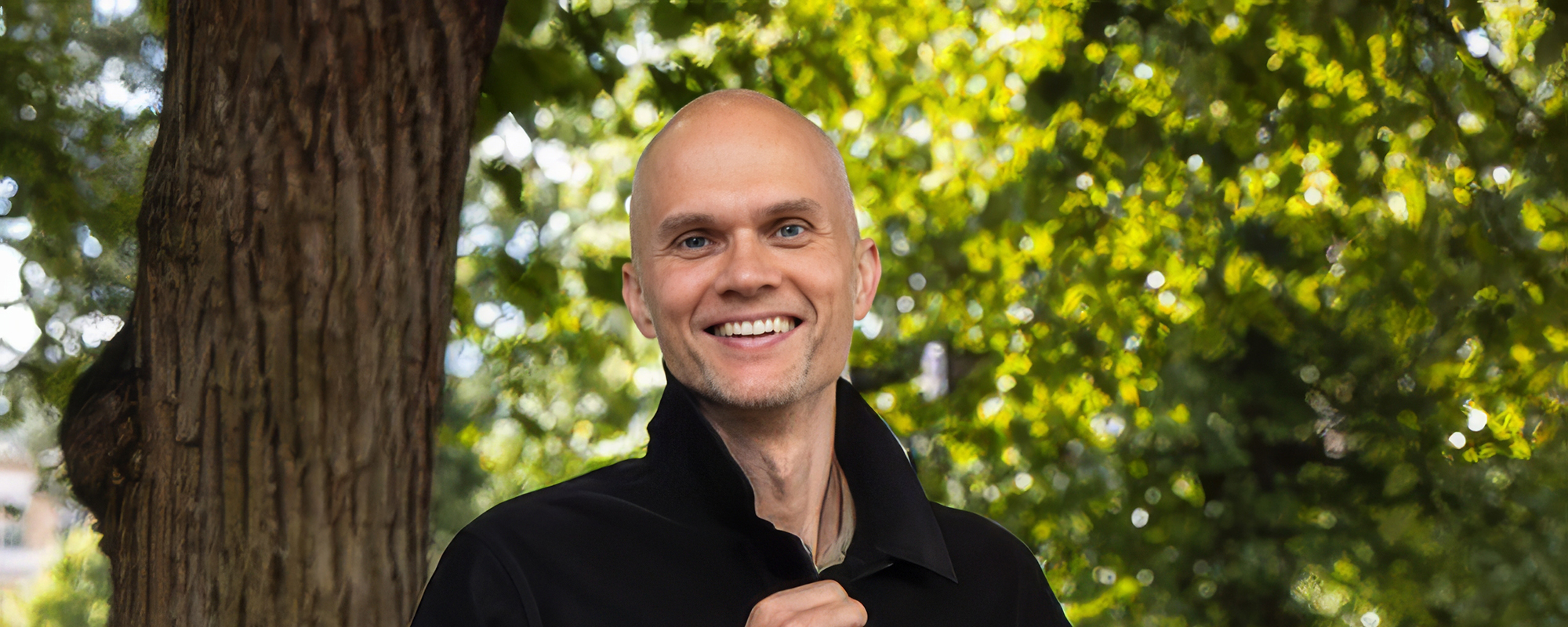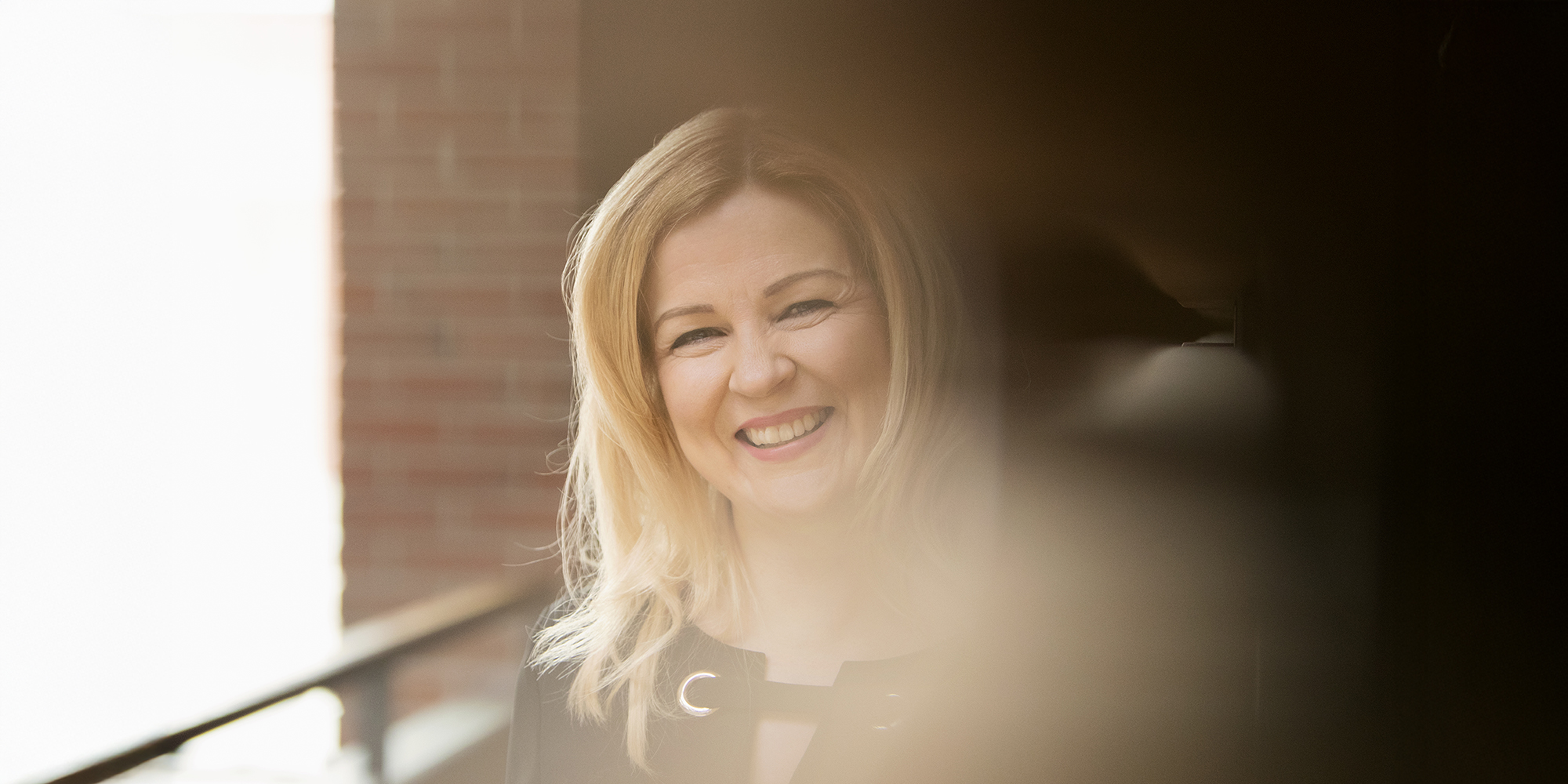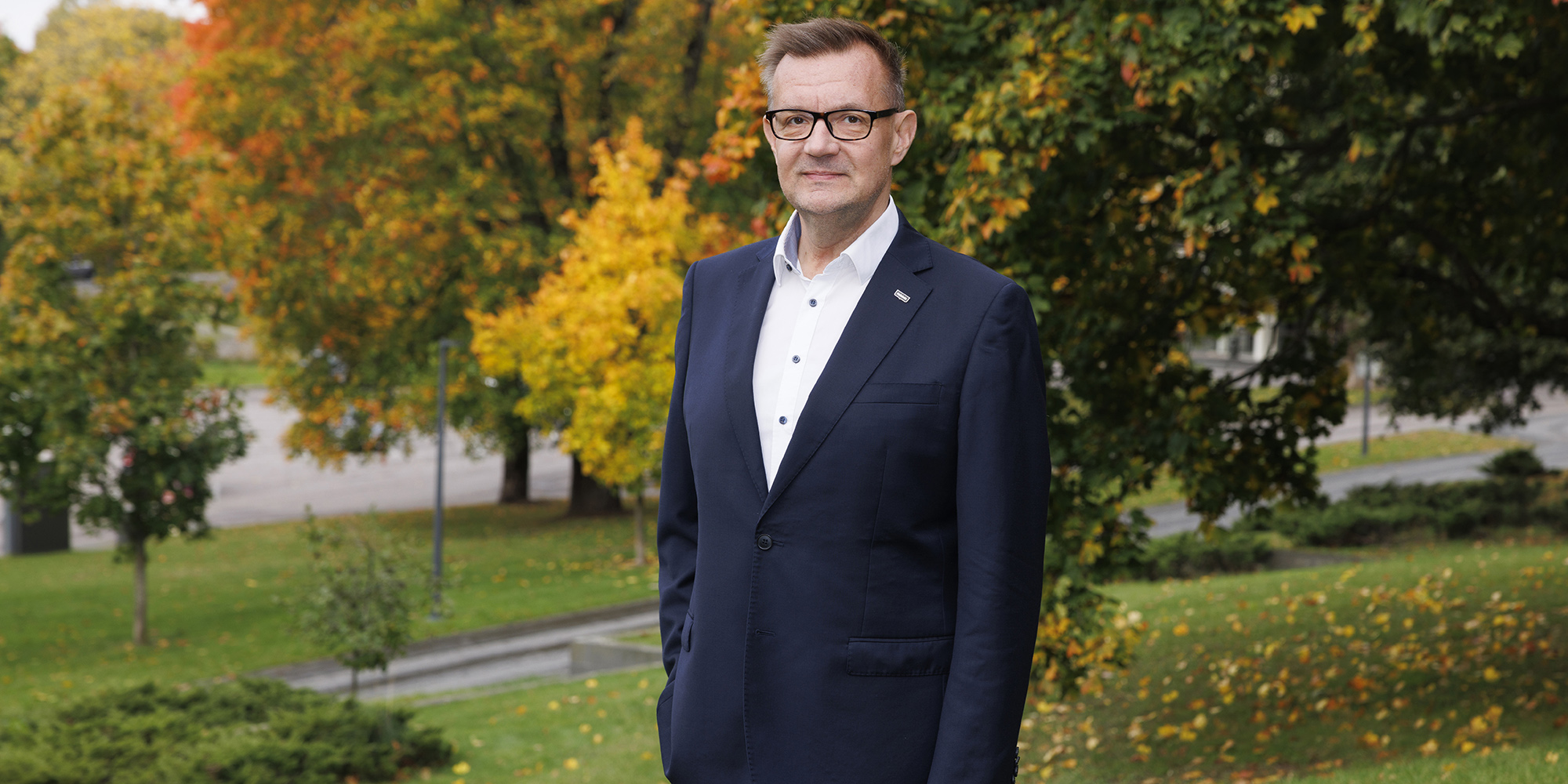“When I look at the history of the Aalto MBA program, I see a lot of courage: the courage to start something new and build relationships with higher education institutions around the world,” shared Riitta Lumme-Tuomala, host of the Aalto MBA program’s 40th anniversary event.
The themes of courage and internationality were highlighted by other speakers as well. The concept of internationality has grown into emphasizing the importance of diversity in general.
“Aalto University as a whole might look a lot different without the international impact of MBA. The program has raised the bar to an international level,” said Timo Korkeamäki, Dean of Aalto University School of Business and one of the instructors of the MBA program back in the early 2000s.
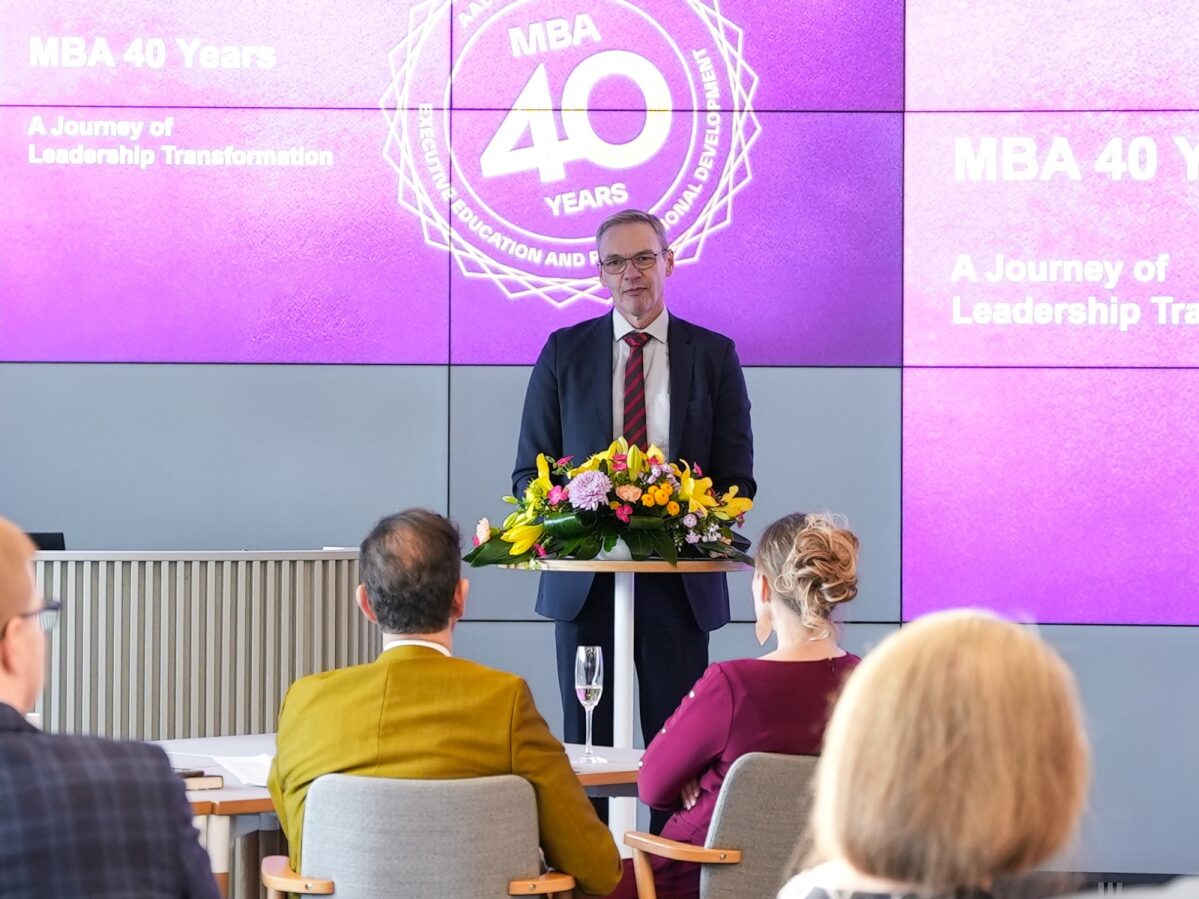
One of the speakers of the event was Timo Korkeamäki, Dean at the Aalto University School of Business.
Executive Coach Ira Lange, one of the MBA program’s current instructors, pointed out that leading with courage first requires facing one’s fears. Courage is also about accepting the fact that you can’t control everything, neither your own nor others’ emotions, for example.
“Fear is a natural, sometimes even useful emotion associated with self-preservation. But we can become enslaved by that emotion if we don’t have the courage to be ourselves and live by our core values for fear of not being accepted,” Lange stresses.
Courage stems from the truth
According to Lange, courage always starts from being truthful. We can easily be corrupted by even the smallest lies or fraudulent statements related to protecting our own reputation, for example.
Fear is also behind team members silently condoning offensive behavior or actions that otherwise violate their values, for example.
According to Lange, there are three separate pictures of ourselves: how we think others see us, how he would like others to see us, and the real picture of who we truly are. She says it is easy for us to believe that there is either something strange about or wrong with us. But what we have to give to others actually stems from that very uniqueness.
“The idea of genuinely finding oneself can be scary. But it also comes with the idea that we can be something bigger, that we can dare to be seen and be vulnerable. Learning this will take time, and some will find it easier than others.”
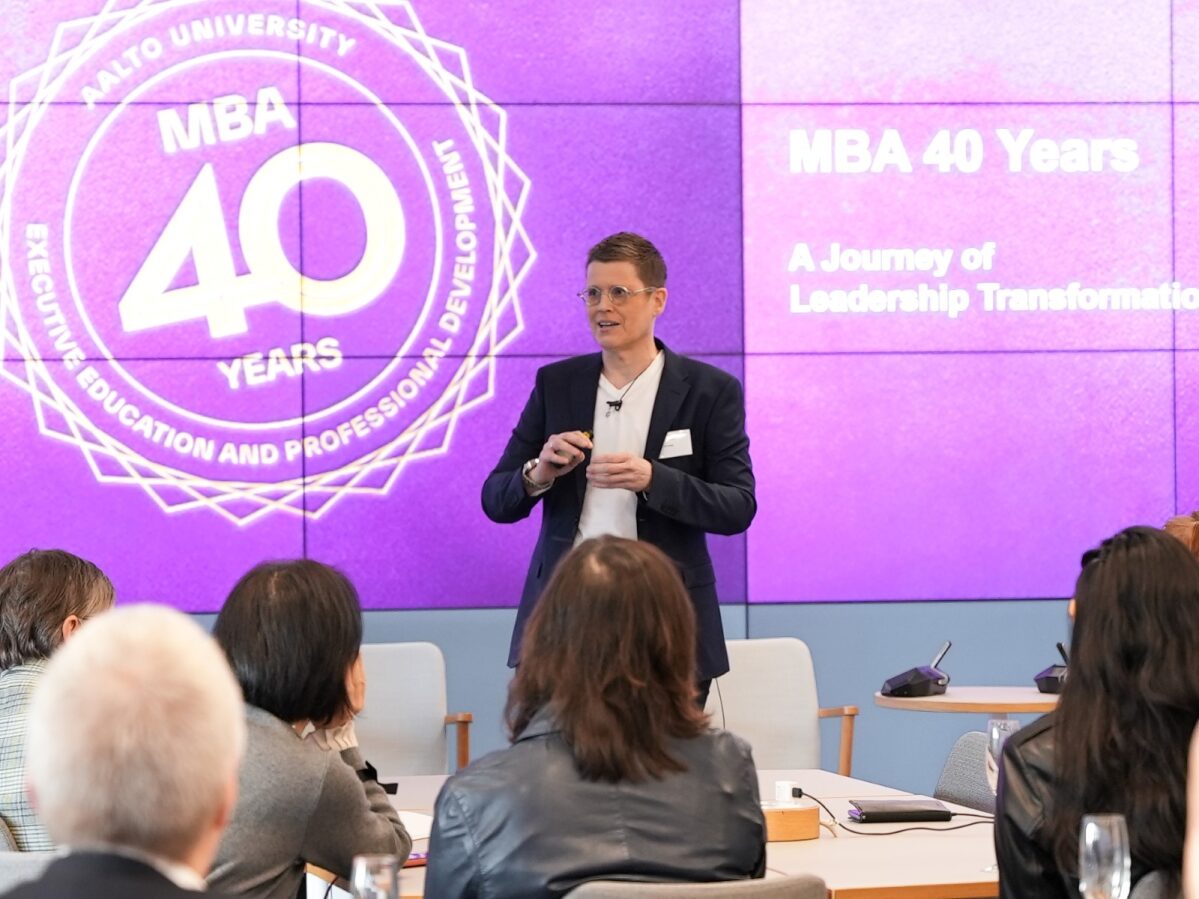
According to Ira Lange, courage always starts from being truthful.
According to Lange, courage needs strong roots: it grows not only from truthfulness, but also from patience, gentleness, and hope. We need to be able to speak sympathetically to ourselves and to others.
“If we look at life and other people from these roots, we will be able to see something more than rude, unwelcome behavior, and lift others up. And then it won’t matter to you if someone doesn’t always like you.”
Connected by authenticity
When executives are authentic and have the courage to share things about themselves, they will be able to connect with the people around them, even in difficult situations. If there’s no connection, people will leave the organization.
“The connection will always break eventually. What matters is what happens after that: whether the connection can be rebuilt,” notes Lange.
The alumni speaking at the event reminisced about their time in the MBA program and also about the most difficult moments in their careers, the times when honesty was required.
“I’m a lawyer, telling the truth is not my strong suit,” joked Andre Noël Chaker.
“The most difficult moment for me was not sugar-coating the truth when I had to let people go. It was perhaps the most honest thing I have ever done, and the most difficult day of my career.”
Canadian-born, Chaker is one of Finland's most popular speakers and part of the management team of the MySpeaker speaker bureau. The MBA alumnus from the turn of the millennium appreciated the international spirit of the program and reminded listeners of the importance of immigrants.
“40 percent of Fortune 500 companies are founded by immigrants or students from abroad, or their children. One million foreign students have come to Finland since 1993, and less than one percent have stayed here permanently. Staying in Finland should be made easier, so that we can all create growth together.”
Corporate culture makes or breaks success
Vesa Helkkula took the Aalto MBA program in the 1980s and has had an extensive career in leadership roles at Nokia and smaller Finnish technology companies. As his most important lesson in leadership, Helkkula noted the fact that corporate culture and a feeling of purpose will make or break the success of an executive.
“I quit my job at Nokia Mobile Phones because I didn’t agree with the company’s values – and left the company a day before Jorma Ollila took charge.”
Helkkula recalled how later a company he took over turned a loss into a profit in six months. This required replacing the management team and transitioning from a culture that blamed the client to a culture that respected people.
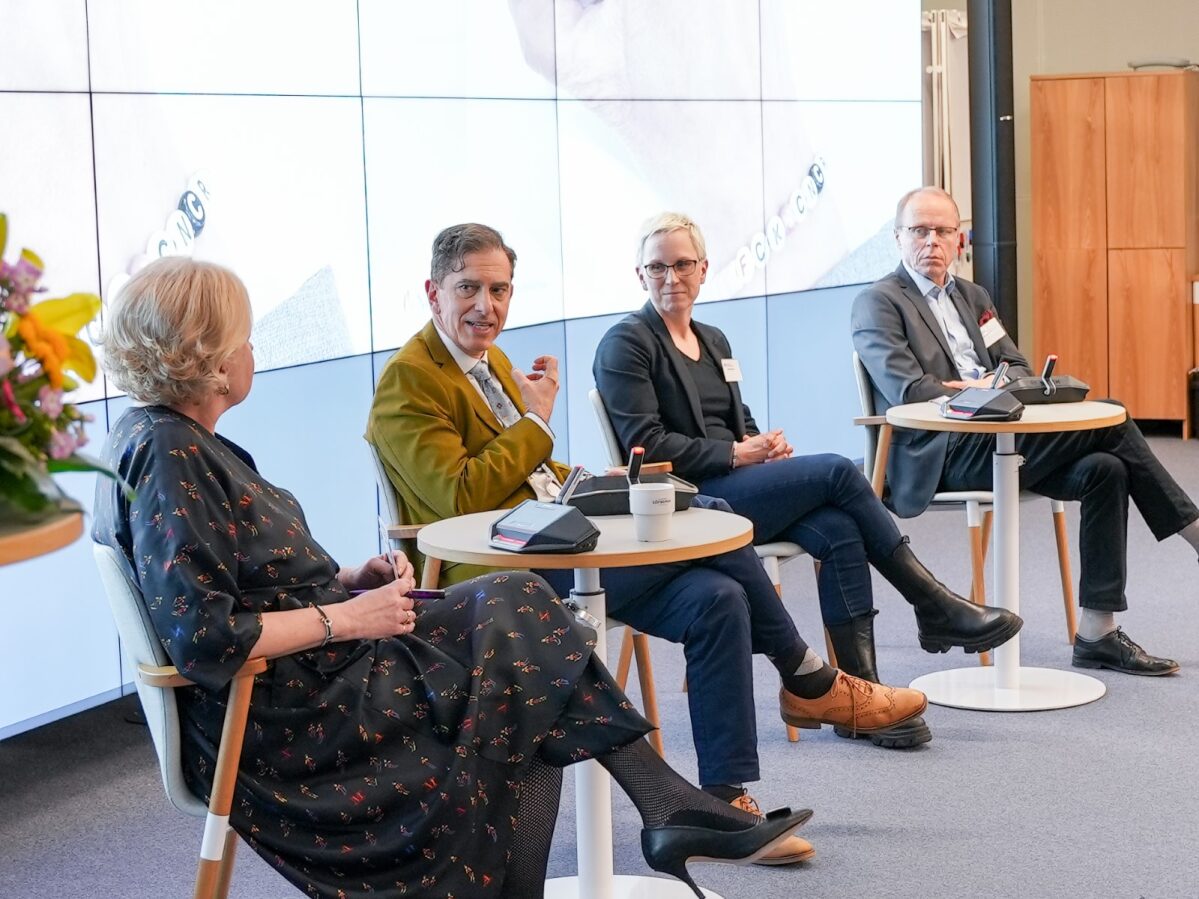
MBA alumni Andre Noël Chaker (second from left), Minna Kumpula and Vesa Helkkula shared stories from their career. Riitta Lumme-Tuomala facilitated the discussion.
“People will work hard when they trust each other and don’t have to be afraid. And a company can't be all about making a profit. People need to feel that what they do has a purpose and that they are contributing to society. If you are able to do this better than your competitors, then you will make a profit.”
“I learned how to collaborate”
Minna Kumpula, Managing Director of Novartis Finland, took the MBA program because she wanted to change careers from research to business. Kumpula had previously worked for the prestigious Dana-Farber Cancer Research Institute in the United States. The MBA program initiated an unexpected change in her attitude.
“Dana-Farber had a very competitive corporate culture. I was used to working alone and highlighting my own achievements. In the MBA program, I learned how to collaborate, how to admit to not knowing something, and even how to give credit to others. I loved the diversity of the MBA program, as it also applied to values.”
During her career, Kumpula has overcome episodes of corporate restructuring by being able to see a new direction for the company and believing in the future. But the most difficult moment of her career was about something else.
“When working for one of my previous employers, I had to get a large team behind something I didn’t believe in myself. I tried, but failed. Not long after that, we had all left the company.”
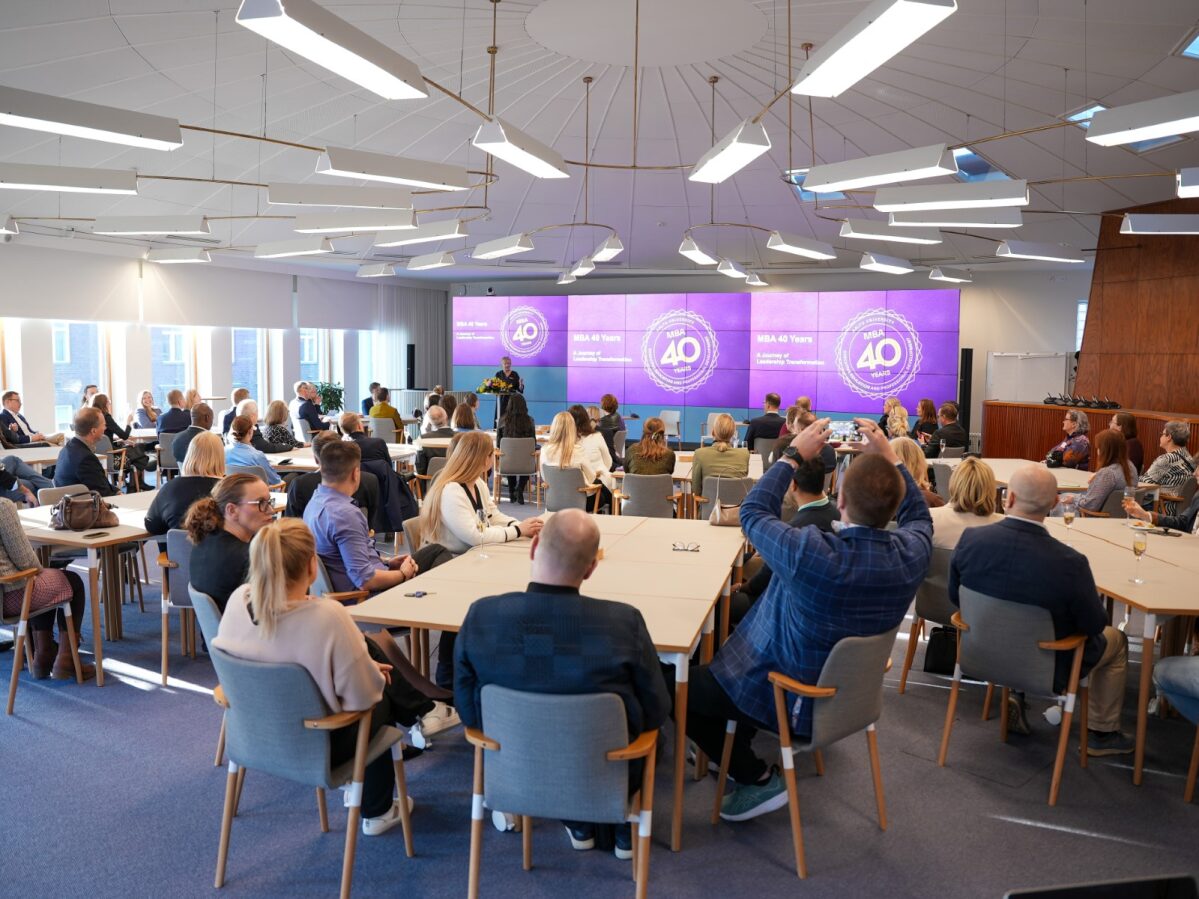
The participants of the MBA 40 event were Aalto MBA alumni, current participants, faculty members, and stakeholders.
Kumpula admitted that she would not have been able to sum up the purpose of her career during her time in the MBA program. Instead, it took more time and reflection. Now it's crystal clear.
“I want to be involved in building Finnish health care and filling the gap in cancer treatment so that there is a cure for all cancers.”

